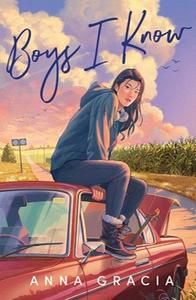
 A Taiwanese American teen stumbles through the confusions of choosing a college, interpreting sexual interest from young men and asserting her desires in this refreshingly sex-positive coming-of-age YA.
A Taiwanese American teen stumbles through the confusions of choosing a college, interpreting sexual interest from young men and asserting her desires in this refreshingly sex-positive coming-of-age YA.
Eighteen-year-old June Chu doesn't get to choose: her parents decided she would play violin, certain colleges are off limits and her unofficial boyfriend, Rhys, must be kept a secret. Her mom would rather June focus on being like Wendy, her older sister. "Wendy was never like this.... Wendy was Valedictorian. Wendy had ten full-ride offers for violin." But June is focused on Rhys. When a friend claims "Rhys only wants his girlfriend tight where it counts," June feels pressured to initiate sex; Rhys rebuffs then ghosts her inexplicably. Next, June meets Brad, who flirts openly with a "glint in his eye." Brad becomes her "first official boyfriend," and June's tumultuous experience with intimacy begins.
Boys I Know by Anna Gracia is a frank story about the hypocritical and sexist expectations placed on teen girls. It recognizes that teens are sexually active even though open discussion of teen sexual life is not normalized; June first has sex (with a young man who asks, "You sure you're ready for this, China?") hidden in a playground tunnel. Gracia also shows how hard it can feel to withdraw consent: June considers asking a partner to stop when sex hurts but reminds herself, "I asked for this. It was my decision." As more young men pay attention to June, she slowly begins to figure out that there is a difference between being attracted to someone and liking that they are attracted to you.
June's cultural backdrop is poignantly prominent. Violin, which June must practice three hours per day, is never intended as her permanent pursuit; "it was just something Asian parents did." The Chinese proverbs regularly recited by June's mother are a constant reminder to June of their "entrenched roles: her [mother] as the wise teacher, [June] as the ignorant student." Microaggressions and the questioning of Asian Americans' authenticity (June is told she's not "Chinese Chinese") are also tactfully incorporated.
Throughout, June's drive to pick a college for herself--not for a boy or her parents--serves as an accessible framework around which this bold debut takes place and touts the difficulty and importance of self-reflection. --Samantha Zaboski, freelance editor and reviewer
Shelf Talker: This candid and complex coming-of-age YA follows a Taiwanese American high school senior trying to figure out what she wants from young men, family and college life.

